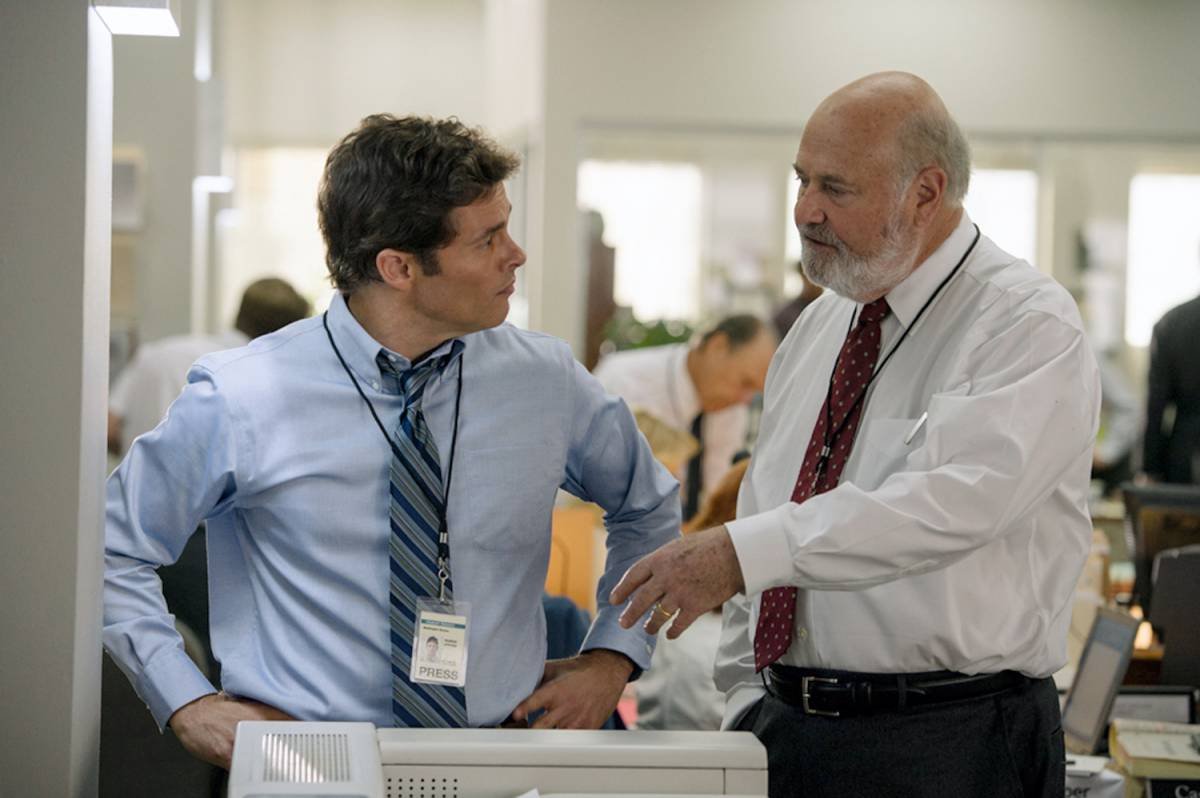(Note: Boy, I had to hold my nose for this one. Rob Reiner has made some decent movies over the years, and we’ll always have Spinal Tap, but let’s get real: he spent at least ten of our 20 minute phonecall yammering about Putin and Trump and treason and Russiagate; highly ironic given the subject of his film and deeply painful for me, since I was well aware by mid-2018 that the Mueller circus was a pointless stitch-up, and that the Intelligence community had deployed its Hollywood assets to sell the narrative. Nobody was more religious about it than Rob Reiner and his pummelling Twitter account, but it was wasted on this interviewer, and I made a point of mentioning it precisely nowhere in the article. Anyway, I’m glad he said “libtard” and not me. My reference to “an impressive number of progressive causes” is what service journalism looks like. Still: nice enough fella. He might even be sincere in his beliefs.)
Like sharks to chum, a frenzy of bloodletting followed the mid-July arrival in U.S. theatres of the movie Shock and Awe. Breitbart and Fox News led the online charge, feasting on the film’s perceived box-office struggles and chowing down for good measure on director Rob Reiner, a bogeyman to America’s extreme right after attaching himself over the years to an impressive number of progressive causes.
The truth—assuming we can handle the truth—is that Shock and Awe performed very respectably in its simultaneous multiplatform release, landing immediately in iTunes’ Top 20. Reiner’s hecklers would prefer to ignore that.
“But that’s the alternative reality that you deal with,” the filmmaker remarks, adding, during a call to the Georgia Straight from his home in L.A., that he’s fine with inflaming his ideological enemies. “Breitbart, I got a feeling would be vicious,” he deadpans. “I’m called a libtard all the time.” Reiner then launches into a refrain that’s becoming more and more familiar to anyone living outside of the United Snakes of America.
“I just first wanna apologize for our president, because, you know, only 40 percent of the people in this country like him,” he says. “So the vast majority don’t like him. But the problem is that journalists now, in America, can’t penetrate Breitbart and Fox and Sinclair and Alex Jones and all that. So, that’s the thing that’s most frustrating—and I think it’s much more frustrating for journalists—is that you cannot get the truth to those people. They just won’t listen. They’re in a cult; they’re going to listen to whatever Donald Trump says, and he just lies his ass off. Every minute of the day.”
Shock and Awe, getting its Canadian theatrical release on Friday (July 27), is explicitly concerned with the legacy of one of the previous liars who occupied the White House. When the Bush administration decided in 2003 to go forward with its long-desired invasion of Iraq, a compliant U.S. media dutifully transcribed every increasingly preposterous charge against Saddam Hussein, from trumped-up connections to 9/11 to nonexistent yellowcake uranium. Reiner’s film looks at the one domestic news agency, Knight Ridder, that went against the tide—even as its own newspapers refused to publish the reporting of skeptical journalists like Warren Strobel and Jonathan Landay (played in the film by James Marsden and Woody Harrelson, respectively).
For Reiner, media capitulation at the time was forced by “the headwinds of patriotism after 9/11”, while the cyclone of postreality that defines the Trump era feels more like an externalization of the most chaotic and dangerous mind yet to ascend to the Oval Office. “Mental illness” is Reiner’s assessment of the American president.
“Something is wrong with him,” he states. “Who lies the way this guy does, continually? He’s gotta have a deep-seated emptiness inside of him that needs to be constantly filled up with money and adulation or whatever.
“Listen,” he continues, “every president uses propaganda to sell a policy that they’re trying to push through Congress or a rationale to go to war, or whatever, but it’s never happened in the history of America where you’ve got a president essentially backed up by state-run media. That’s something that autocrats have, like Putin or Duterte or Erdogan. It’s not America. It’s not a democracy. So we’re in a weird place right now, where the press, which is one of the pillars of democracy, is being called an enemy of the people. I mean, that’s fascist talk.”
Published July, 2018
